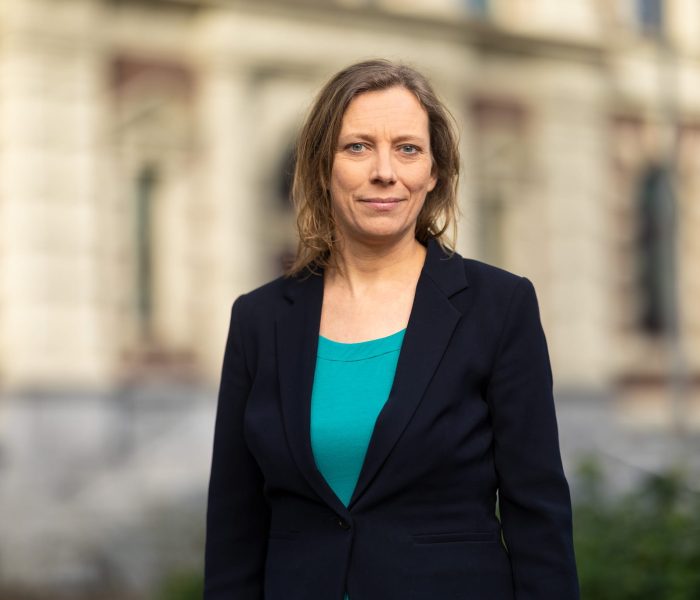How do you ensure that collaboration in the cultural and creative sectors is safe and enjoyable for everyone? This question lies at the heart of Mores, the support and advice center for inappropriate behavior. Dancers, technicians, artists, administrators, creators, students, and others in the sector can turn to Mores for a listening ear, support, or guidance. For the past year and a half, Mette Raaphorst has been leading the Mores office alongside Philip Montnor. With a background in both performing arts and social safety, she uniquely understands the importance of bridging these two worlds.
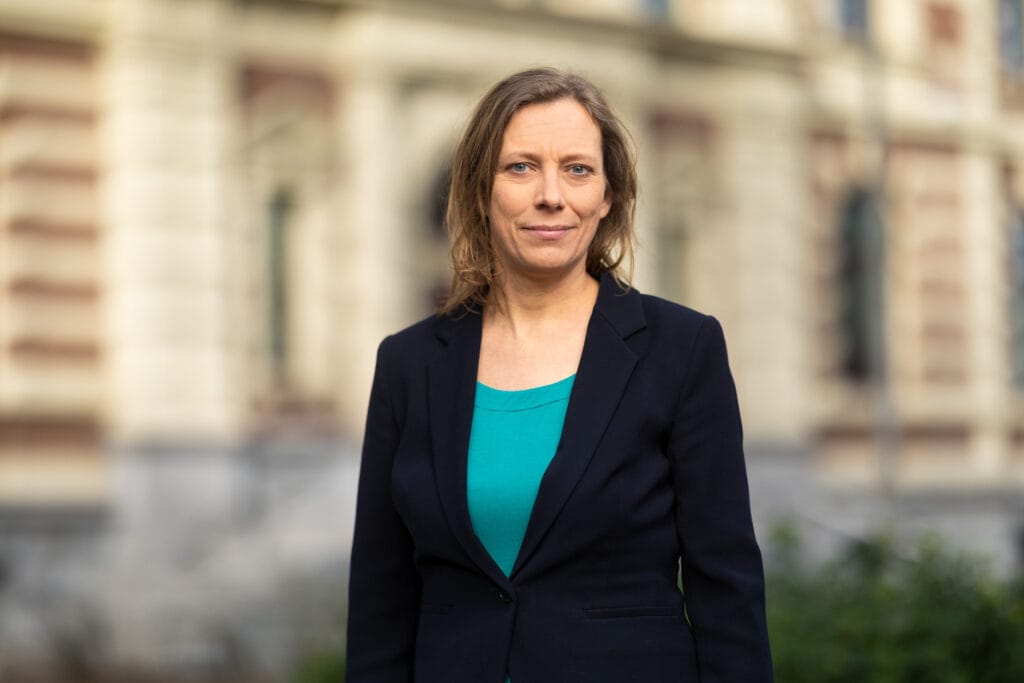
“At Mores, my two core motivations unite: my love for the cultural sector and my commitment to creating safe working environments.”
Photo: Juri Hiensch
A sector-wide support and advice center
Mores was founded in 2018 by institutions from the theater and film sectors, driven by the urgent need to address inappropriate behavior. What began as a reporting point has grown into a solid safety net for the entire sector.
“Social safety should never be a temporary topic but a permanent part of how we work together.”
This evolution is visible externally as well. Mores’ understated visual identity was recently replaced by a rich color palette with a spotlight effect. This change not only better reflects the diversity of the cultural sector but also emphasizes that social safety must remain in the spotlight. The new website, mores.nl, further improves accessibility to confidants and information for the sector.
Besides its visual transformation, Mores’ work has expanded and deepened along three main lines. First, Mores acts as a support center for anyone in the sector experiencing inappropriate behavior. On mores.nl, you’ll find information, tips, and useful links. Second, Mores offers a safety net through seven external confidants for those who cannot or prefer not to use an internal confidant within their own organization. Third, Mores supports organizations with policy and prevention — for example, advising on codes of conduct, appointing confidants, or facilitating constructive dialogue within organizations. Finally, Mores functions as a knowledge platform. “We want to bring together knowledge, experiences, and best practices from different parts of the sector. That’s why we organize sector tables, webinars, and meetings that provide space for exchange and deeper understanding.”
Social safety within the dance sector
Mores is also there for dancers, teachers, and students. Everyone active in the dance world — from teachers to board members, creators to dance academy students — can seek support or advice. The only exception is competitive dancers, who fall under the responsibility of the Safe Sports Center Netherlands (Centrum Veilige Sport Nederland, CVSN).
“Dance involves specific risks,” Mette explains. “Think of bodily contact or the close-knit nature of dance companies, as described in the ‘Schaduwdansen’ report. At the same time, many patterns are recognizable from other sectors. Dance is increasingly intertwined with (music) theater, television, film, or performance art. This calls for coordination and cooperation on a sector-wide level.”
Mores actively fills this bridging role: “We ensure knowledge from one discipline is also accessible to others. This way, sectors learn from each other, creating a stronger foundation.”
How Mores supports dancers
“When you’ve experienced something unpleasant, you can feel incredibly alone. Sometimes that feeling can be even harder to bear than the incident itself. I know the threshold to seek help is often high,” says Mette. “A confidant outside your organization can make it easier to share your story. They are trained to listen without judgment and to think alongside you. They are 100% on your side, and you always stay in control. A confidant discusses your options with you and can help think through next steps to resolve the situation. Sometimes just sharing your story can bring relief.”
The options vary: sometimes doing nothing is the best choice for you; other times, it helps to talk to the person causing distress or a supervisor, file a formal complaint, or take external steps such as reporting to authorities. The confidant helps clarify these routes and, if needed, refers you to appropriate support, such as trauma care or legal assistance.
“We need to move toward a dance culture where speaking out against unwanted behavior is rewarded, and where everyone is motivated and equipped to have those conversations.”
Social safety requires leadership
Many organizations have taken important steps in recent years, Mette notes: behavior codes, complaint protocols, and designated confidants are becoming more common. “But ultimately, cultural change happens on the floor. There’s a role model function for leaders and informal leaders, and a responsibility for everyone. Know your role and how to act when needed.”
Mores is eager to collaborate with organizations. The campaign ‘I Hear You’ encourages sector organizations to actively take responsibility. “By displaying the campaign poster, an organization shows: if something happens to you at work, you can come to us. Simply stating that social safety matters isn’t enough — you must also make it visible and organized. We must work toward a dance culture where speaking out against unwanted behavior is rewarded, and where everyone has both the motivation and the skills to have those conversations.”
Safety as a prerequisite
“The dance world is broad and diverse: from amateur to professional, from classical to musical, and everything in between,” says Mette. “What I wish for everyone is that you can excel in your craft within a safe environment. The sector doesn’t have to be unsafe. Safety is, in fact, a prerequisite for excellent dance performances, regardless of level or discipline.”
| How to get in touch with Mores Have you experienced inappropriate behavior such as bullying, discrimination, sexual harassment, aggression, or violence? Talk about it. You can reach out to Mores for a confidential conversation. 1. First step Visit the website to find information and see photos and short bios of the confidants, so you can choose the one who suits you best. Send a message or email to get in touch. 2. Response within 2 working days You will receive a response within two working days (often sooner) to schedule an appointment. 3. Initial conversation This can take place online, by phone, or at another location you feel comfortable with. 4. Your story in focus The confidant listens to your story and together you explore what’s going on and what options are available. You decide the pace. 5. Next steps You determine the follow-up with support from your confidant. Whether you just want to talk, confront a supervisor, file a complaint, or need referral to trauma care or legal help — you stay in control. Important to know: – Everything you share is 100% confidential, unless there is imminent danger or a serious crime that legally must be reported. – Anyone working or studying in the cultural, creative, or media sectors can contact Mores’ confidants. – Support from a confidant is free of charge. |
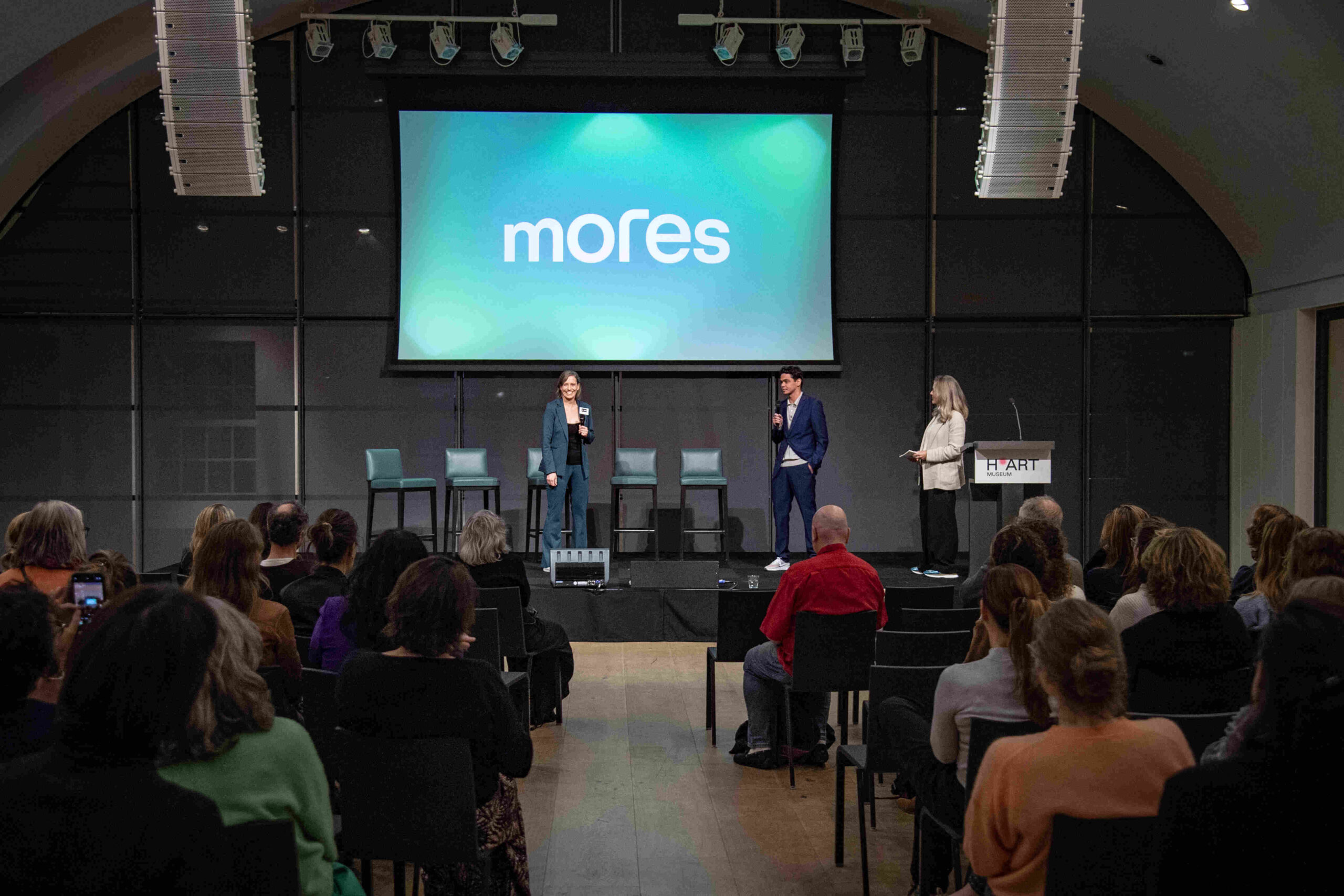
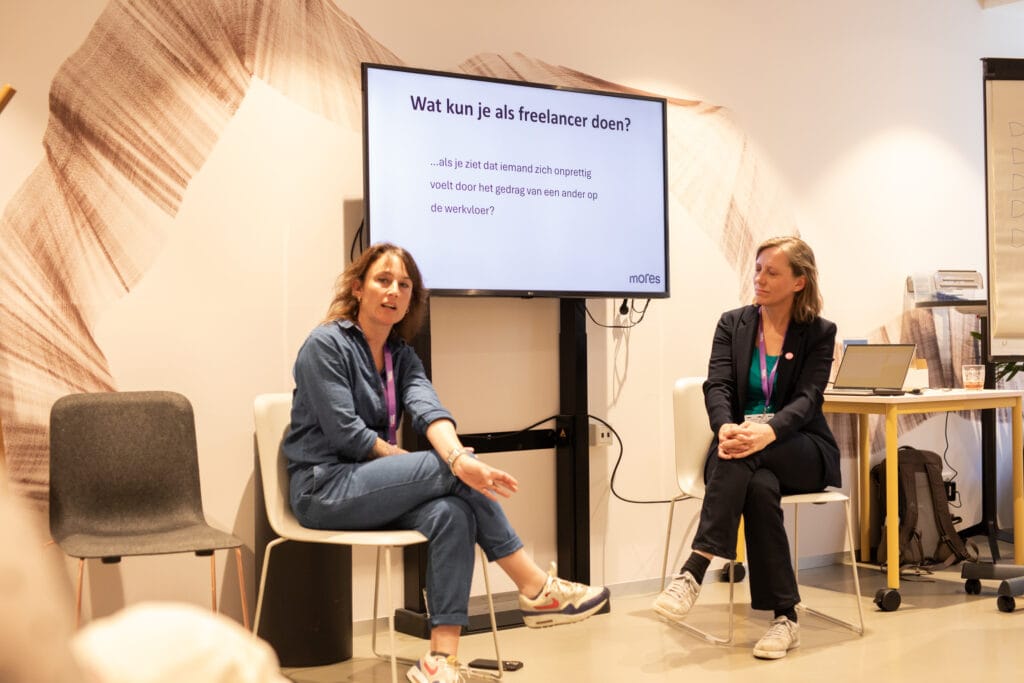
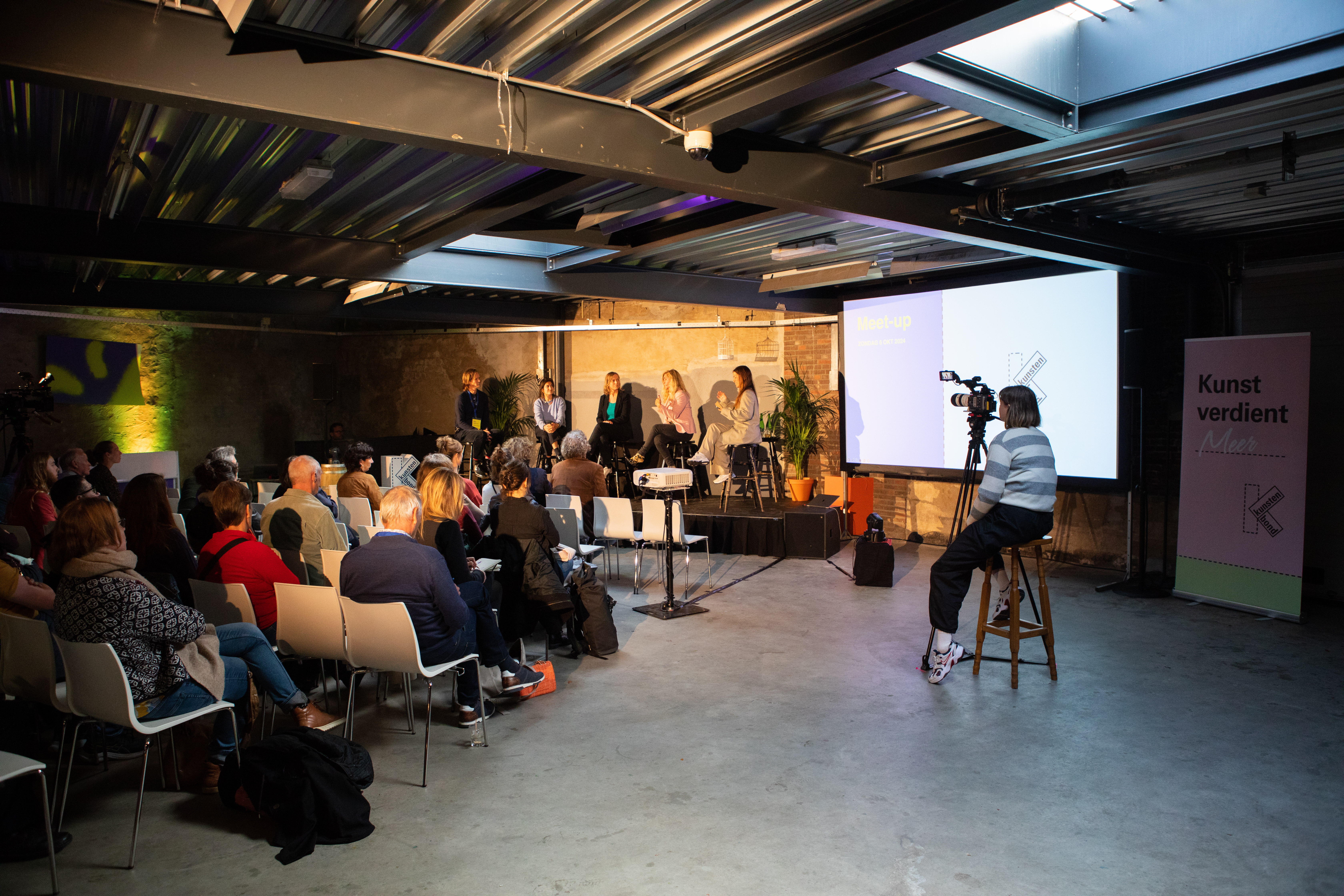
Photo: Geert Snoeijer, Creative Roadz, Catharina Gerritsen
